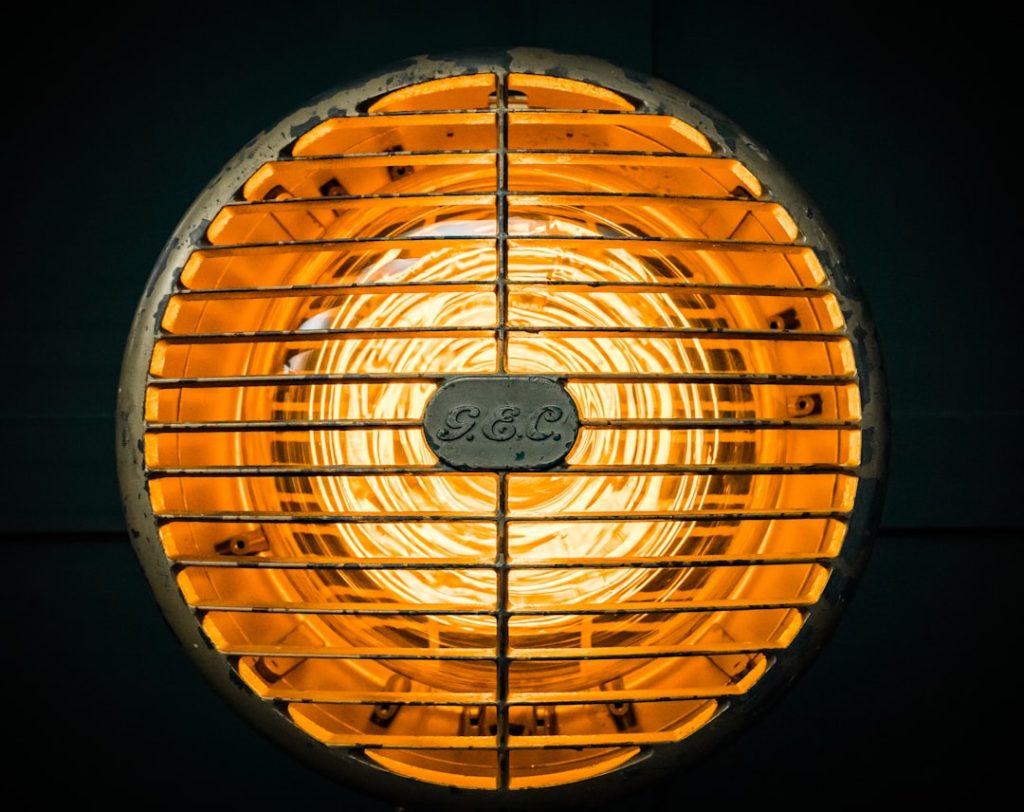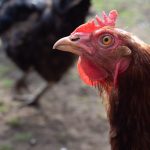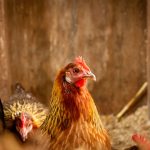Winter significantly affects egg production in chickens. Shorter days and colder temperatures can reduce or halt egg-laying. Chickens depend on daylight to stimulate their reproductive systems, and decreased daylight in winter disrupts hormonal balance, leading to reduced egg production.
Cold temperatures also stress birds, further impacting their egg-laying capabilities. Chicken owners should understand these factors and implement strategies to mitigate winter’s impact on egg production. Cold weather also affects egg quality.
When hens are exposed to low temperatures, their bodies work harder to maintain core temperature, diverting energy from egg production. This can result in smaller eggs with thinner shells, making them more prone to damage and breakage. In extreme cases, eggs may freeze, leading to spoilage and productivity loss.
Understanding these challenges is essential for chicken owners to effectively manage their flocks during winter and maintain a consistent supply of high-quality eggs.
Table of Contents
- 1 Providing a warm and well-insulated coop
- 2 Adjusting the lighting in the coop
- 3 Offering a balanced and nutritious diet
- 4 Ensuring access to fresh water
- 5 Minimizing stress and maintaining a healthy environment
- 6 Monitoring the health of your chickens
- 7 FAQs
- 7.1 What are the reasons why chickens stop laying eggs in winter?
- 7.2 How can I keep my chickens laying in winter?
- 7.3 What kind of lighting should I use to keep my chickens laying in winter?
- 7.4 What should I feed my chickens to encourage egg production in winter?
- 7.5 Are there any health concerns I should be aware of when keeping chickens laying in winter?
Key Takeaways
- Winter can significantly impact egg production in chickens due to shorter daylight hours and colder temperatures
- A warm and well-insulated coop is essential to protect chickens from the cold and maintain egg production
- Adjusting the lighting in the coop with artificial light can help stimulate egg production during the winter months
- Offering a balanced and nutritious diet, including supplemental calcium, can support egg production during winter
- Ensuring access to fresh water is crucial for maintaining the health and egg production of chickens during winter
- Minimizing stress and maintaining a healthy environment in the coop is important for supporting egg production in winter
- Regularly monitoring the health of your chickens can help identify and address any issues that may impact egg production during winter
Providing a warm and well-insulated coop
Insulation and Draft-Proofing
Insulating the coop is key to keeping your chickens warm. Add insulation to the walls and roof, and seal any gaps or drafts that could let cold air in. This will help maintain a cozy temperature and reduce the risk of cold stress.
Ventilation and Moisture Control
In addition to insulation, adequate ventilation is vital to prevent moisture buildup, which can lead to respiratory issues in your chickens. Ensure good airflow in the coop to keep the air fresh and dry.
Supplemental Heat and Temperature Monitoring
During extremely cold weather, provide supplemental heat in the coop using heat lamps or heated pads. However, use these safely to prevent fire hazards. Regularly monitor the temperature in the coop to ensure it remains within a comfortable range for your chickens. By providing a warm and well-insulated coop, you can help your hens stay comfortable and maintain their egg-laying capabilities throughout the winter.
Adjusting the lighting in the coop

As mentioned earlier, daylight plays a crucial role in stimulating egg production in chickens. To mitigate the impact of shorter days in the winter, chicken owners can adjust the lighting in the coop to provide supplemental light. This can be achieved using artificial lighting sources such as LED bulbs or fluorescent lights, which can help extend the “daylight” hours for the birds.
By providing 14-16 hours of light per day, chicken owners can help maintain the hormonal balance in their hens and stimulate consistent egg production throughout the winter. It’s important to note that while supplemental lighting can help maintain egg production during the winter, it’s essential to provide a period of darkness for the birds to rest and recharge. This can be achieved by setting timers for the lights to turn on and off at specific times, mimicking natural daylight patterns.
Additionally, it’s important to ensure that the lighting is evenly distributed throughout the coop to prevent stress or discomfort for the birds. By adjusting the lighting in the coop, chicken owners can help mitigate the impact of shorter days on egg production and ensure a consistent supply of eggs throughout the winter months.
Offering a balanced and nutritious diet
A balanced and nutritious diet is essential for maintaining egg production in chickens, especially during the winter months. Cold weather and shorter days can increase the energy requirements for the birds, making it crucial to provide them with a diet that meets their nutritional needs. This includes a high-quality layer feed that is specifically formulated to support egg production, as well as supplemental sources of protein and vitamins.
In addition to layer feed, chicken owners can provide their hens with treats such as mealworms, sunflower seeds, or fresh fruits and vegetables to supplement their diet and provide additional nutrients. It’s also important to ensure that the birds have access to grit and oyster shell, which are essential for calcium absorption and maintaining strong eggshells. By offering a balanced and nutritious diet, chicken owners can help support their hens’ overall health and maintain consistent egg production throughout the winter.
Ensuring access to fresh water
Access to fresh water is crucial for maintaining egg production in chickens, especially during the winter months. Cold temperatures can cause water sources to freeze, making it difficult for the birds to stay hydrated. To mitigate this, it’s important for chicken owners to provide heated waterers or regularly check and replace frozen water sources to ensure that the birds have access to clean and unfrozen water at all times.
In addition to providing heated waterers, it’s important to ensure that they are placed in a location that is sheltered from wind and cold temperatures to prevent freezing. It’s also important to monitor water consumption regularly to ensure that the birds are staying hydrated, as dehydration can have a significant impact on egg production. By ensuring access to fresh water, chicken owners can help support their hens’ overall health and maintain consistent egg production throughout the winter.
Minimizing stress and maintaining a healthy environment

Creating a Stress-Free Environment
To mitigate this, it’s important for chicken owners to minimize stress and maintain a healthy environment for their birds. This includes providing adequate space in the coop, ensuring good ventilation, and keeping the coop clean and free from pests.
Handling and Enrichment
Additionally, it’s important to handle the birds gently and minimize disturbances in the coop to prevent unnecessary stress. Providing enrichment activities such as perches, dust baths, and toys can also help keep the birds occupied and reduce boredom and stress.
Maintaining Consistent Egg Production
By minimizing stress and maintaining a healthy environment, chicken owners can help support their hens’ overall well-being and maintain consistent egg production throughout the winter.
Monitoring the health of your chickens
Monitoring the health of your chickens is crucial for maintaining egg production during the winter months. Cold weather and stress can make chickens more susceptible to illness, so it’s important for chicken owners to regularly check their birds for signs of illness or injury. This includes monitoring their behavior, appetite, and overall appearance for any changes that could indicate a health issue.
Additionally, it’s important to regularly clean and inspect the coop for signs of pests or disease, as these can have a significant impact on the health of the birds. Providing regular veterinary care and vaccinations can also help prevent illness and maintain overall health in the flock. By monitoring the health of your chickens, you can identify and address any issues early on, helping to maintain consistent egg production throughout the winter months.
In conclusion, maintaining egg production in chickens during the winter months requires careful attention to various factors such as lighting, diet, water access, environmental conditions, and overall health management. By understanding these challenges and taking proactive measures to address them, chicken owners can help support their hens’ overall well-being and ensure a consistent supply of high-quality eggs throughout the winter months.
If you’re looking for ways to keep your chickens laying in winter, you may also be interested in learning about the benefits of an A-frame chicken coop. This type of coop can provide your chickens with a comfortable and secure environment, which can help encourage egg production even during the colder months. Check out this article to learn more about the advantages of an A-frame chicken coop for your flock.
FAQs
What are the reasons why chickens stop laying eggs in winter?
Chickens may stop laying eggs in winter due to decreased daylight hours, colder temperatures, and changes in their diet and nutrition.
How can I keep my chickens laying in winter?
To keep your chickens laying in winter, you can provide supplemental lighting to extend their daylight hours, ensure they have a warm and dry coop, and offer a balanced diet with sufficient protein and calcium.
What kind of lighting should I use to keep my chickens laying in winter?
You can use a simple incandescent or LED light bulb in the coop to provide supplemental lighting for your chickens. It’s important to gradually increase the light exposure to mimic natural daylight patterns.
What should I feed my chickens to encourage egg production in winter?
In winter, you can feed your chickens a diet that includes high-protein foods such as mealworms, sunflower seeds, and soybeans, as well as calcium-rich supplements like crushed oyster shells.
Are there any health concerns I should be aware of when keeping chickens laying in winter?
In winter, it’s important to monitor your chickens for signs of frostbite, respiratory issues, and decreased egg production. Providing a warm and dry environment, along with proper nutrition, can help prevent these health concerns.
Meet Walter, the feathered-friend fanatic of Florida! Nestled in the sunshine state, Walter struts through life with his feathered companions, clucking his way to happiness. With a coop that’s fancier than a five-star hotel, he’s the Don Juan of the chicken world. When he’s not teaching his hens to do the cha-cha, you’ll find him in a heated debate with his prized rooster, Sir Clucks-a-Lot. Walter’s poultry passion is no yolk; he’s the sunny-side-up guy you never knew you needed in your flock of friends!







